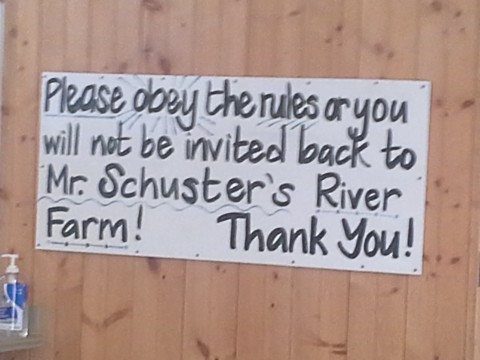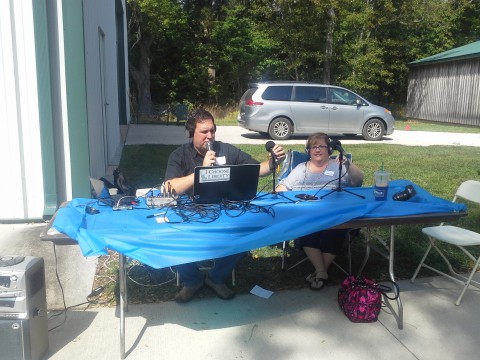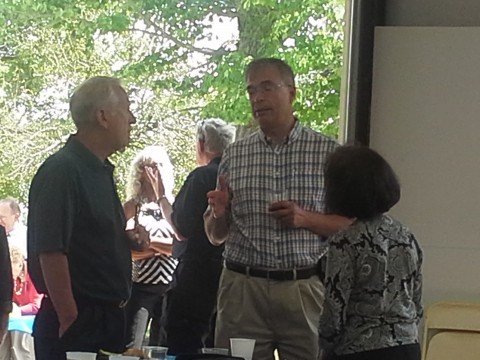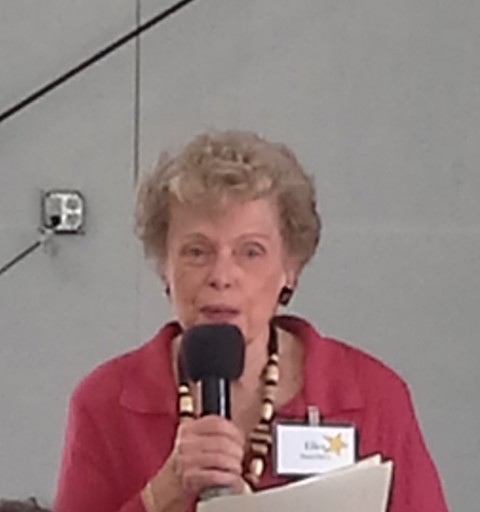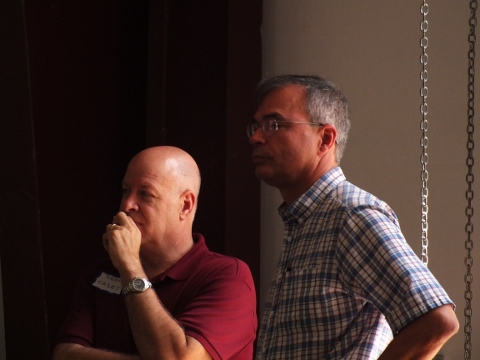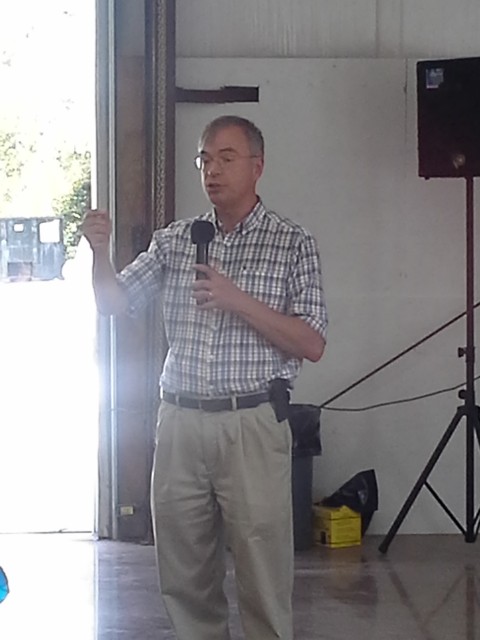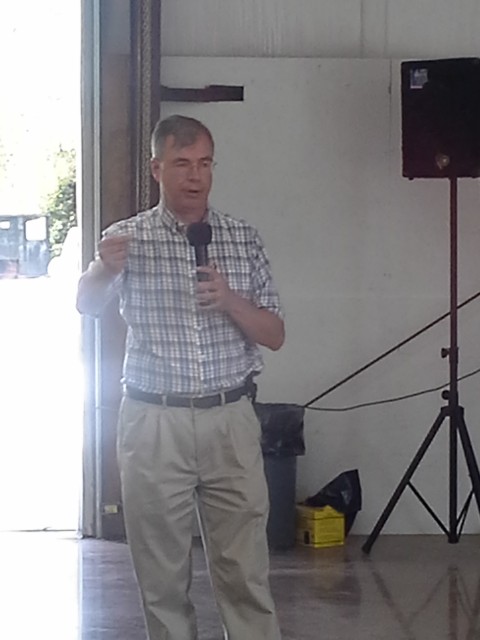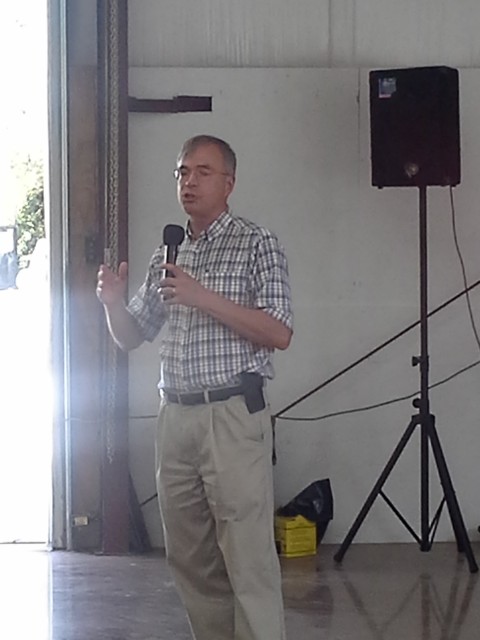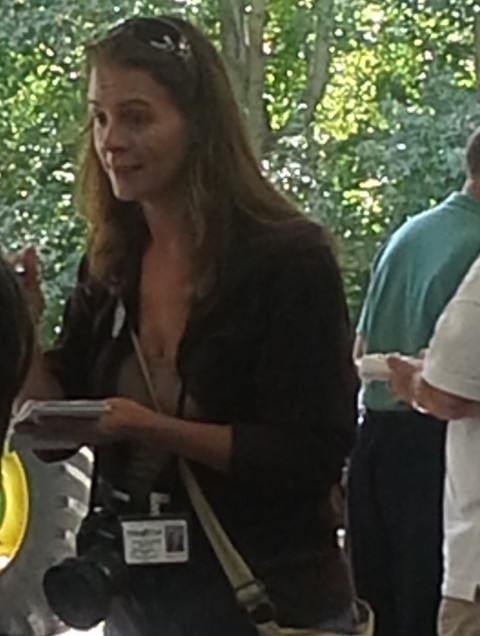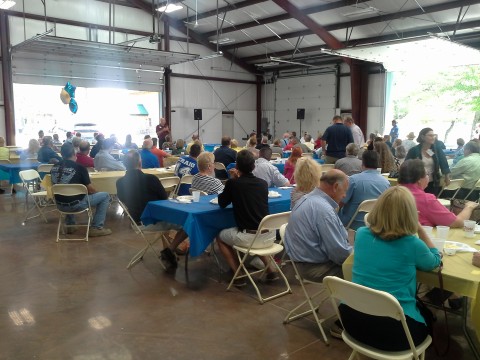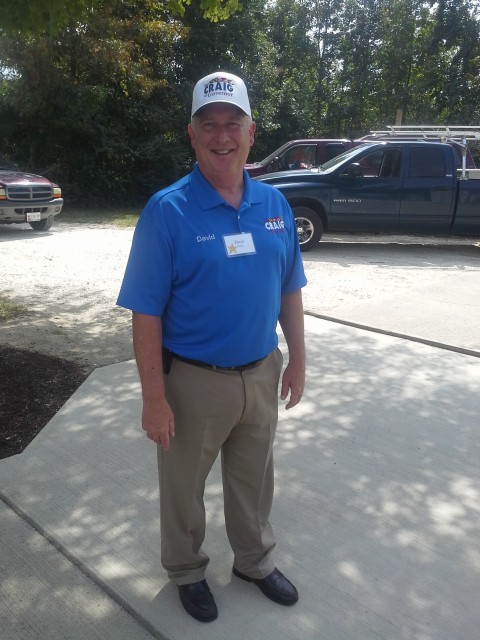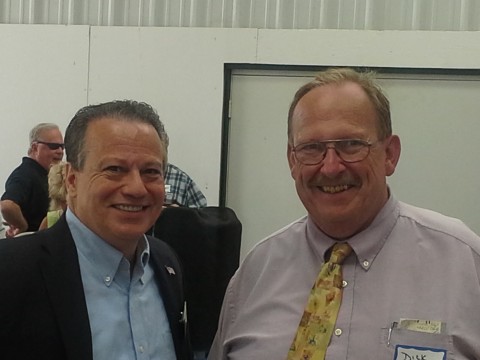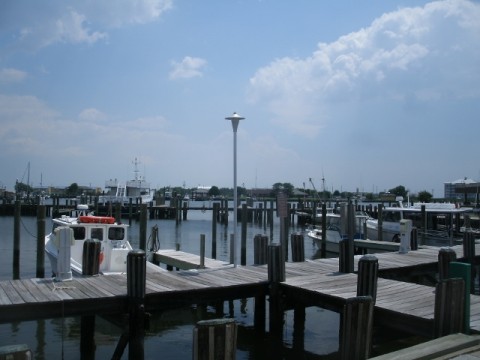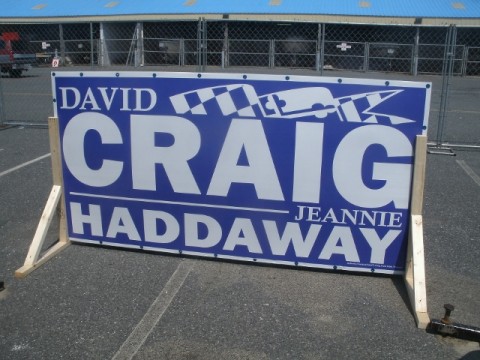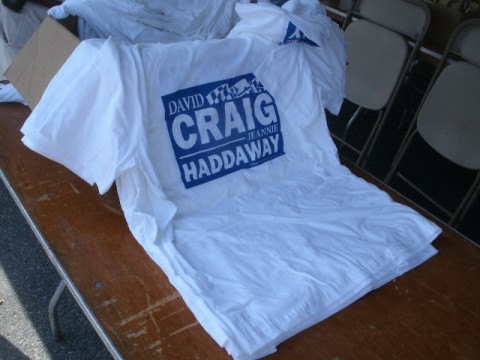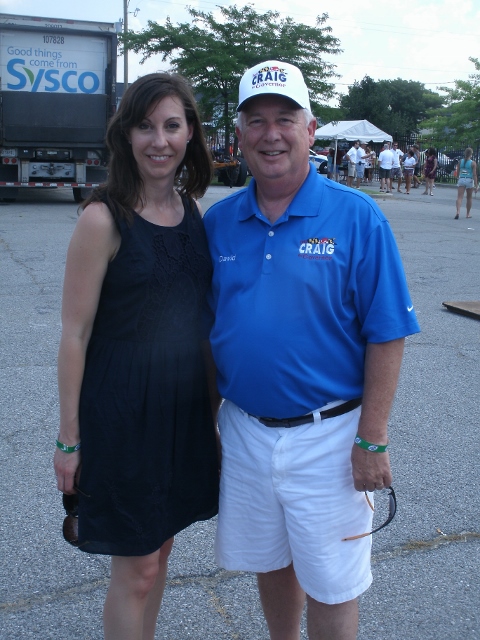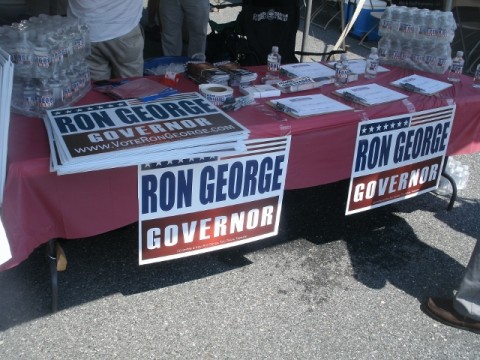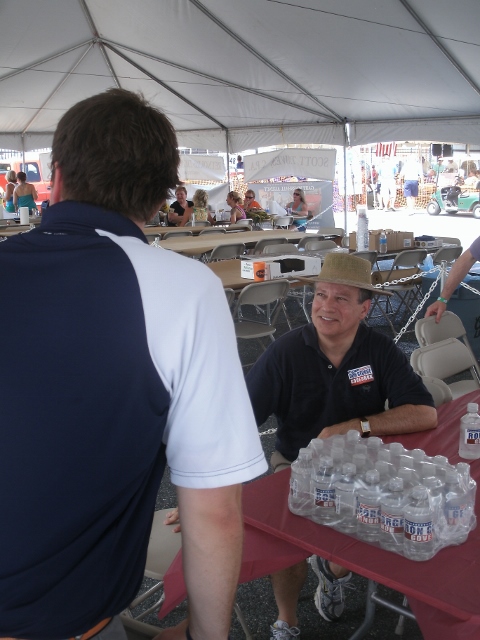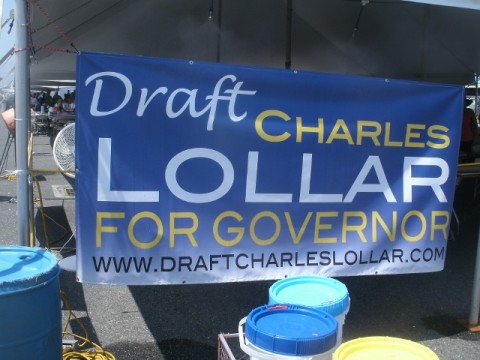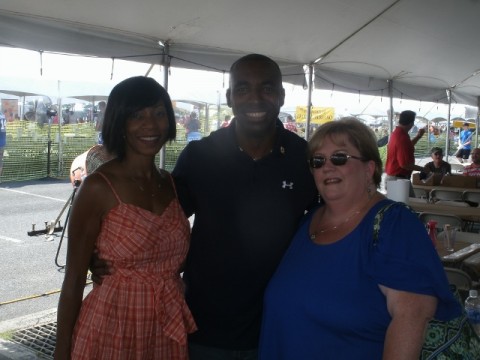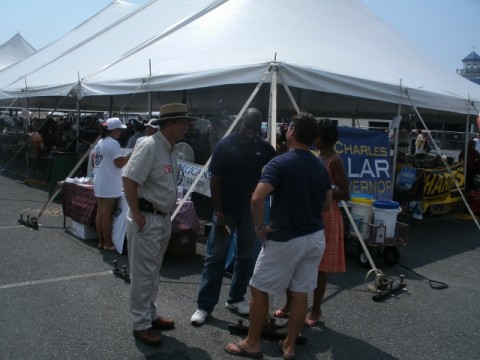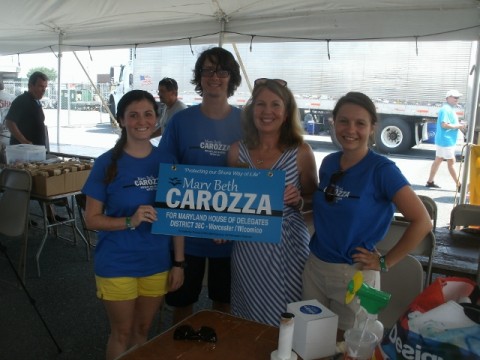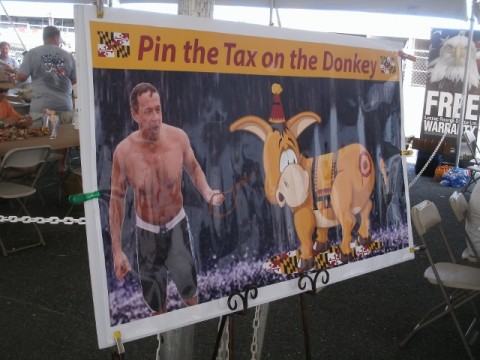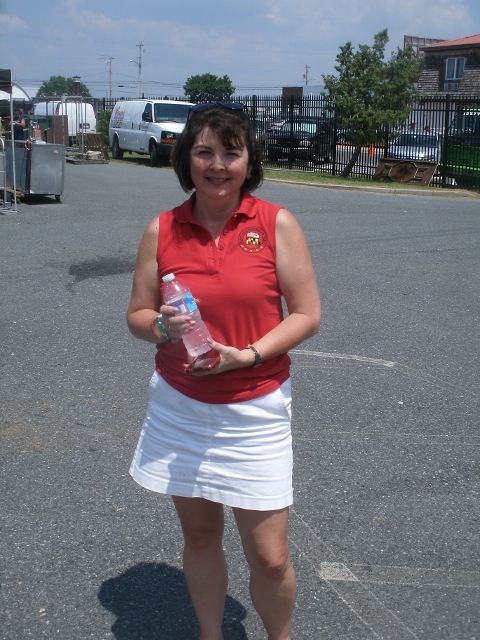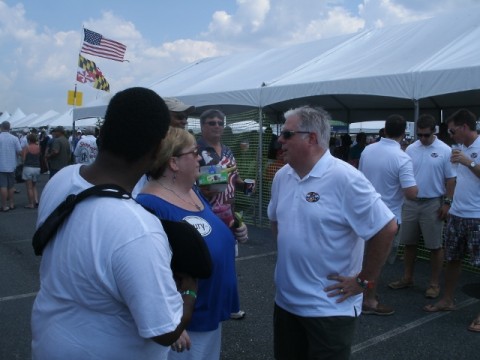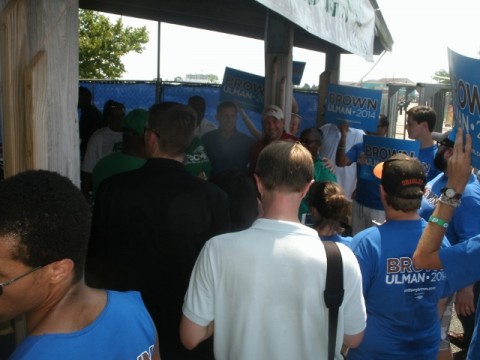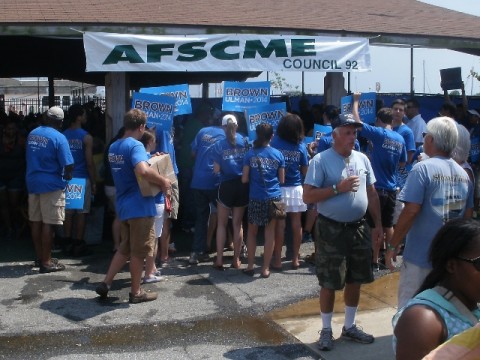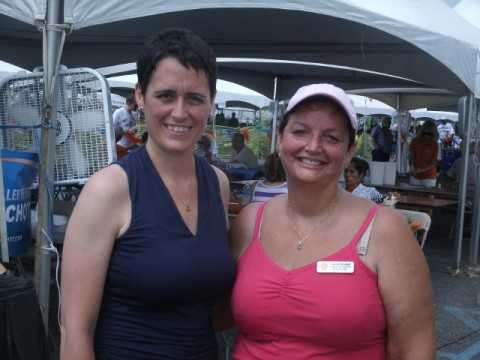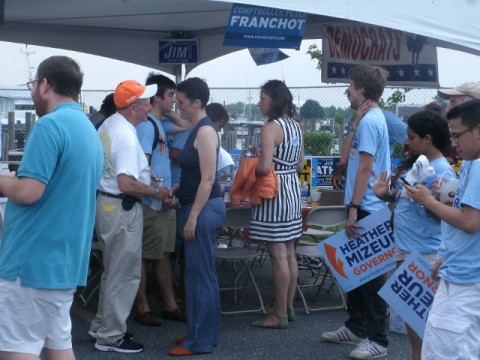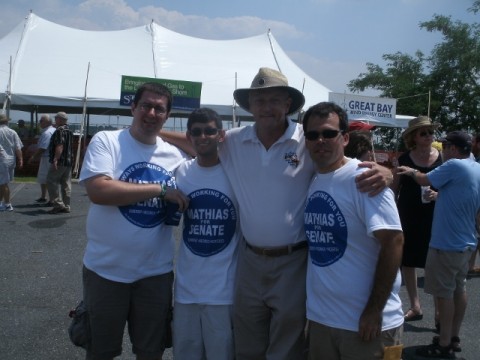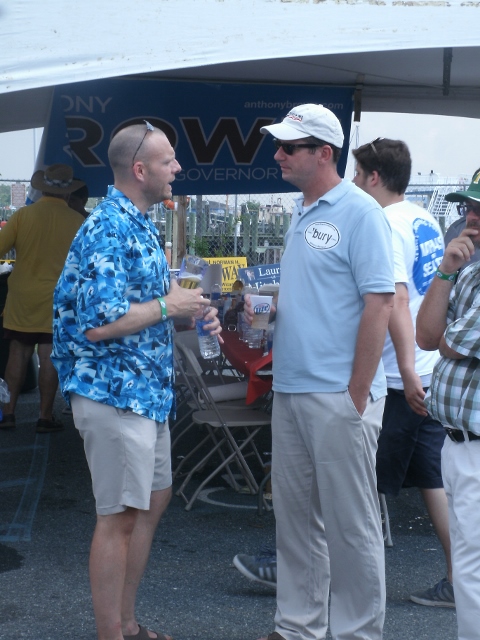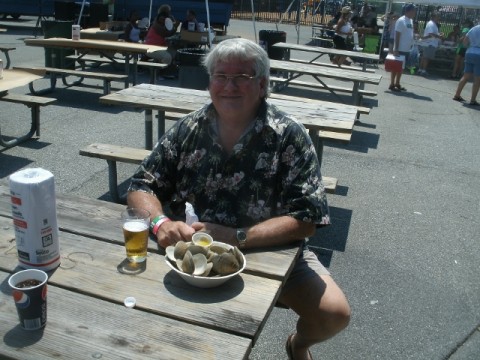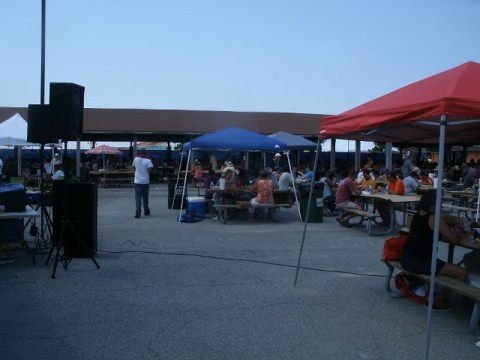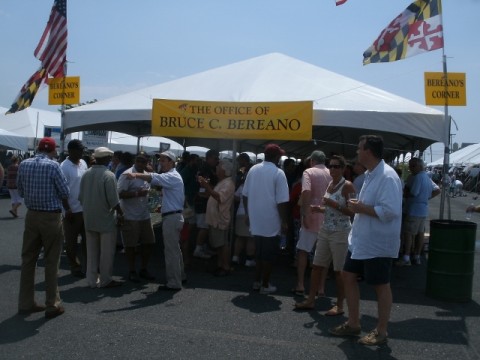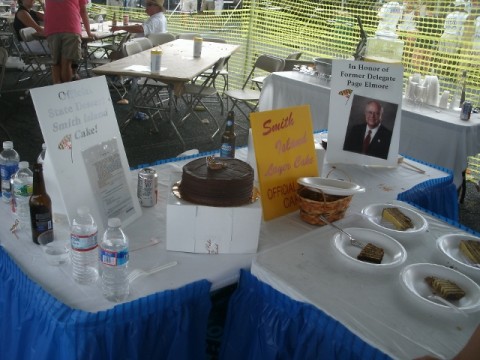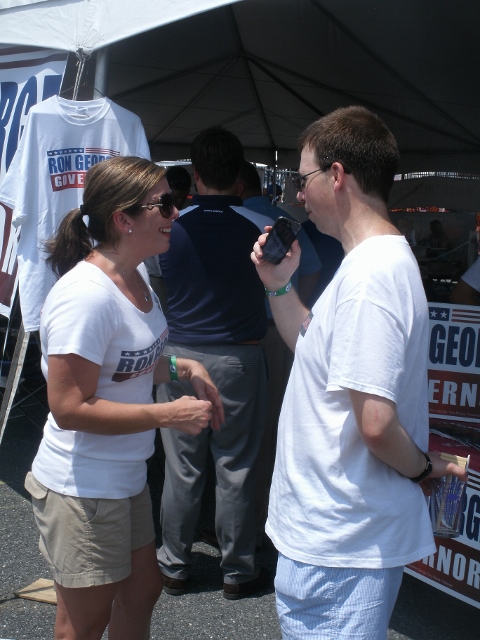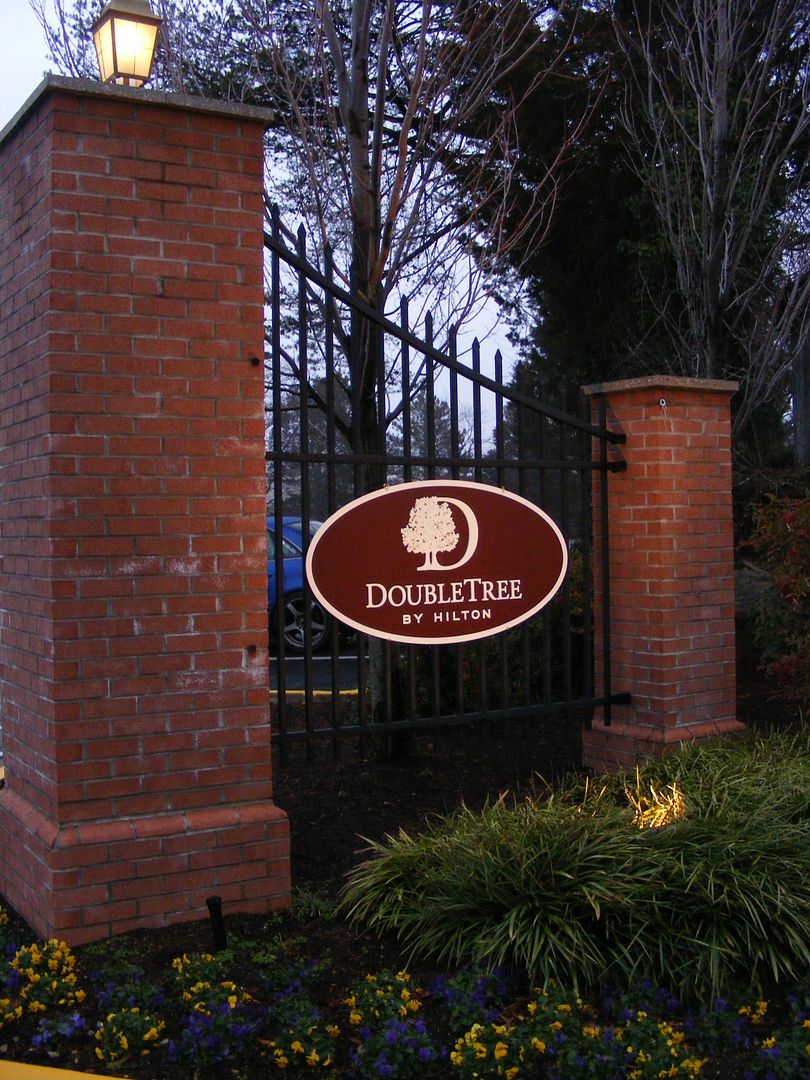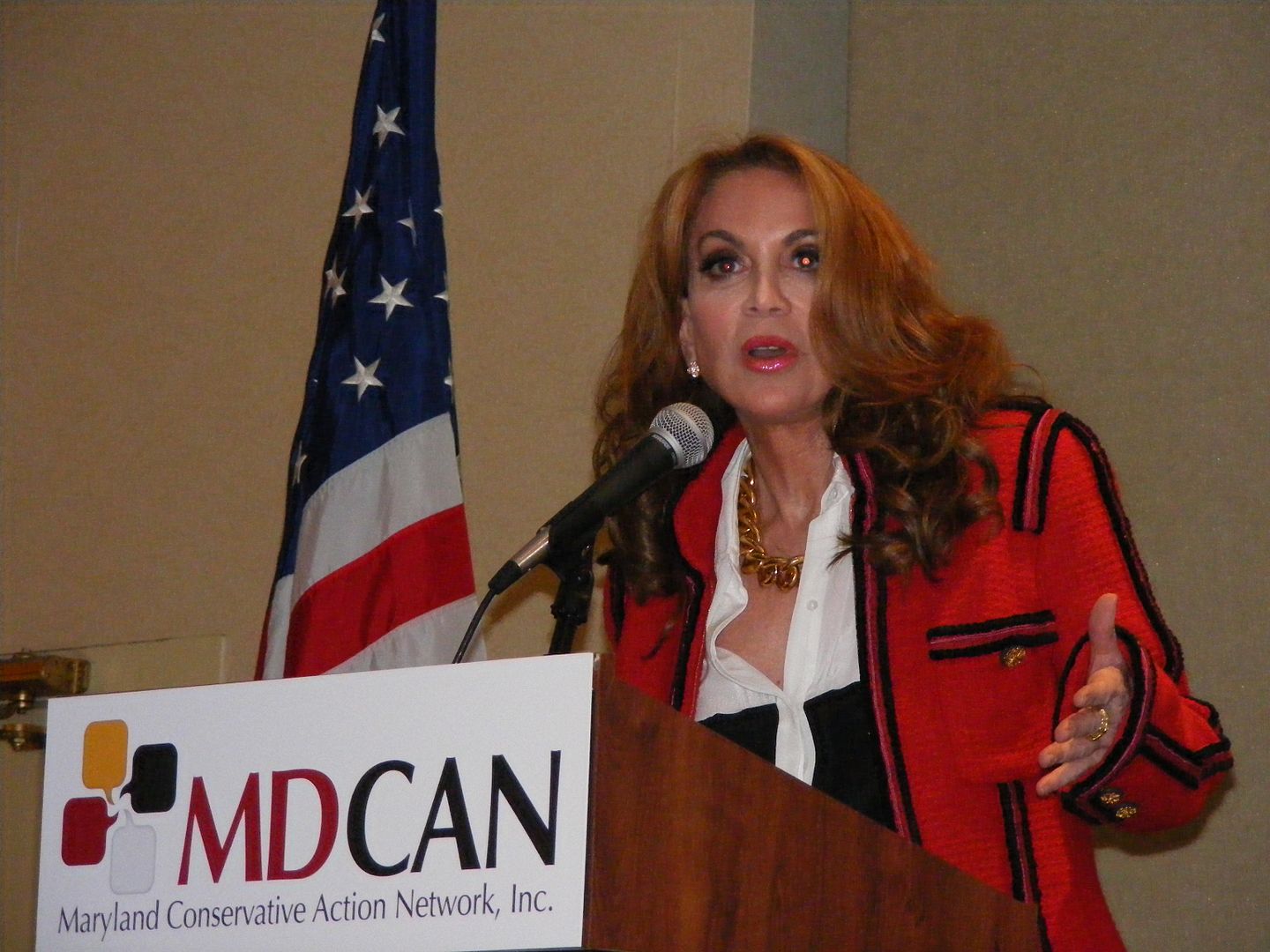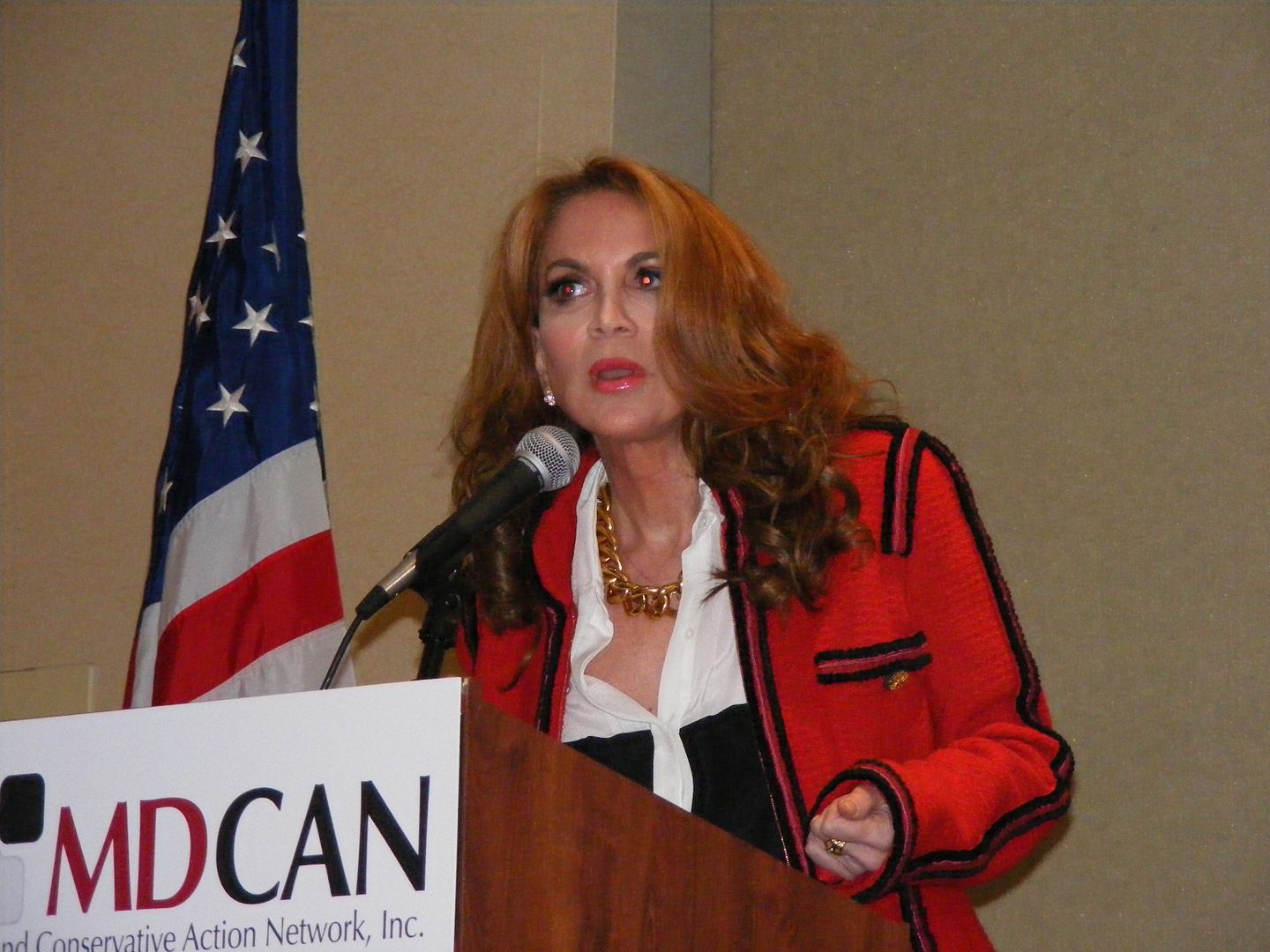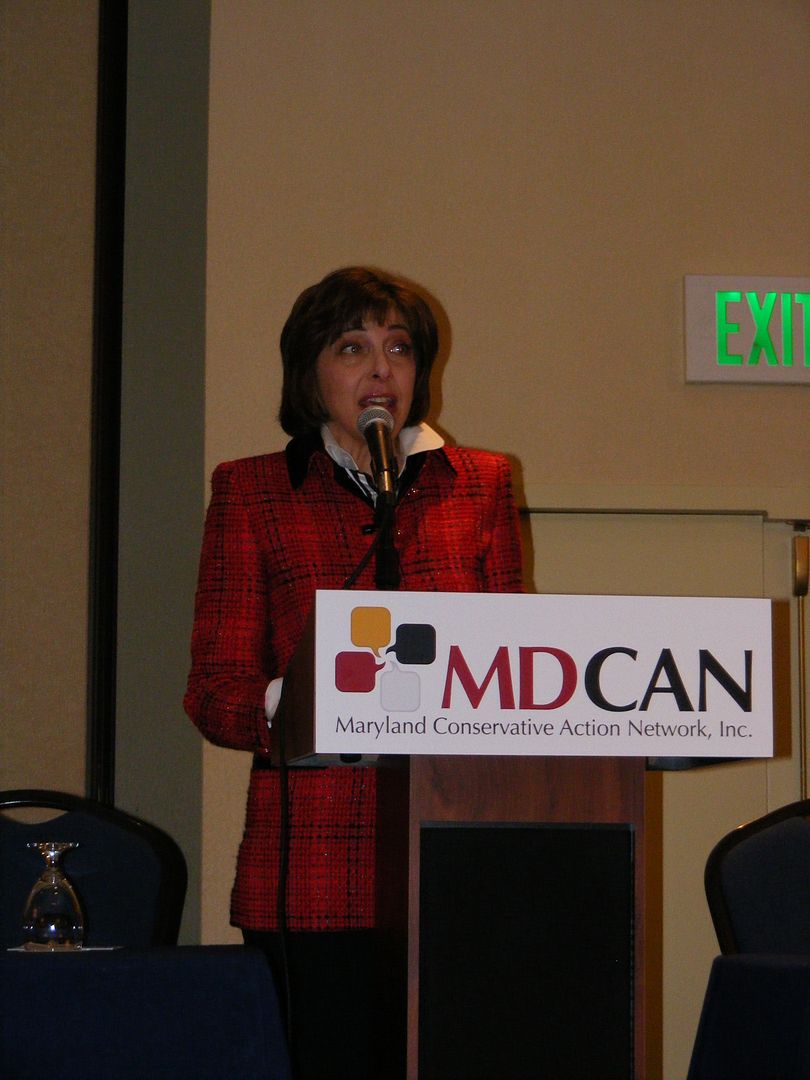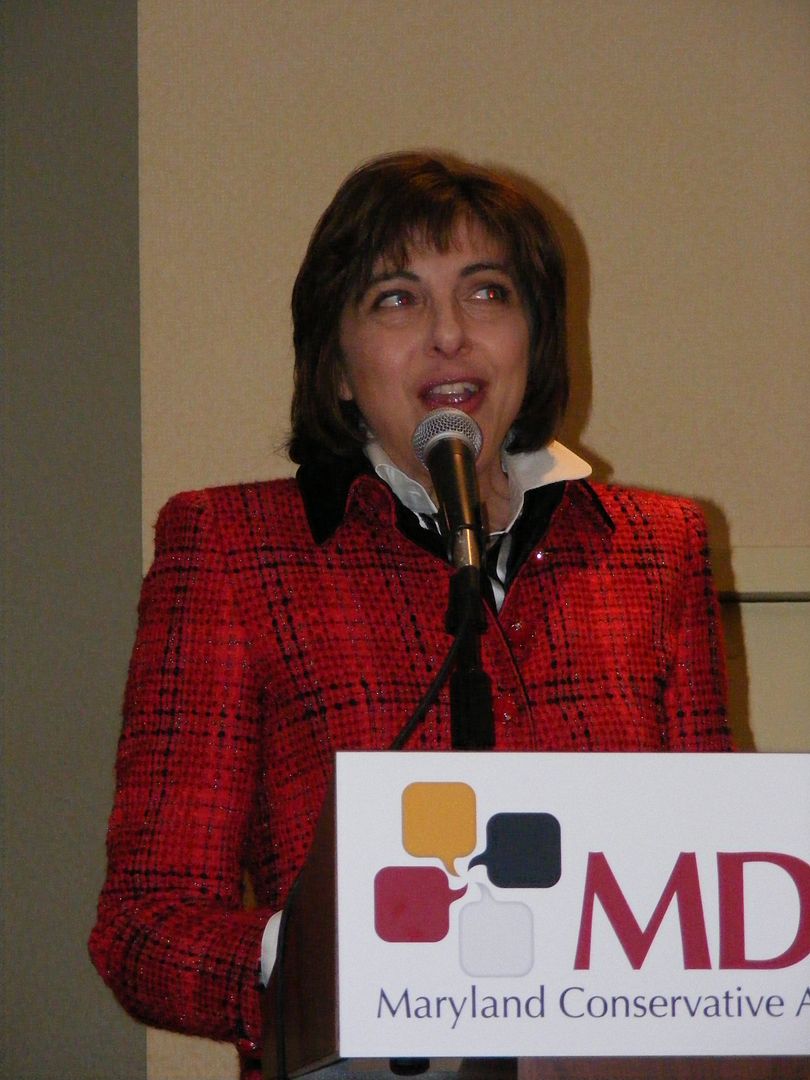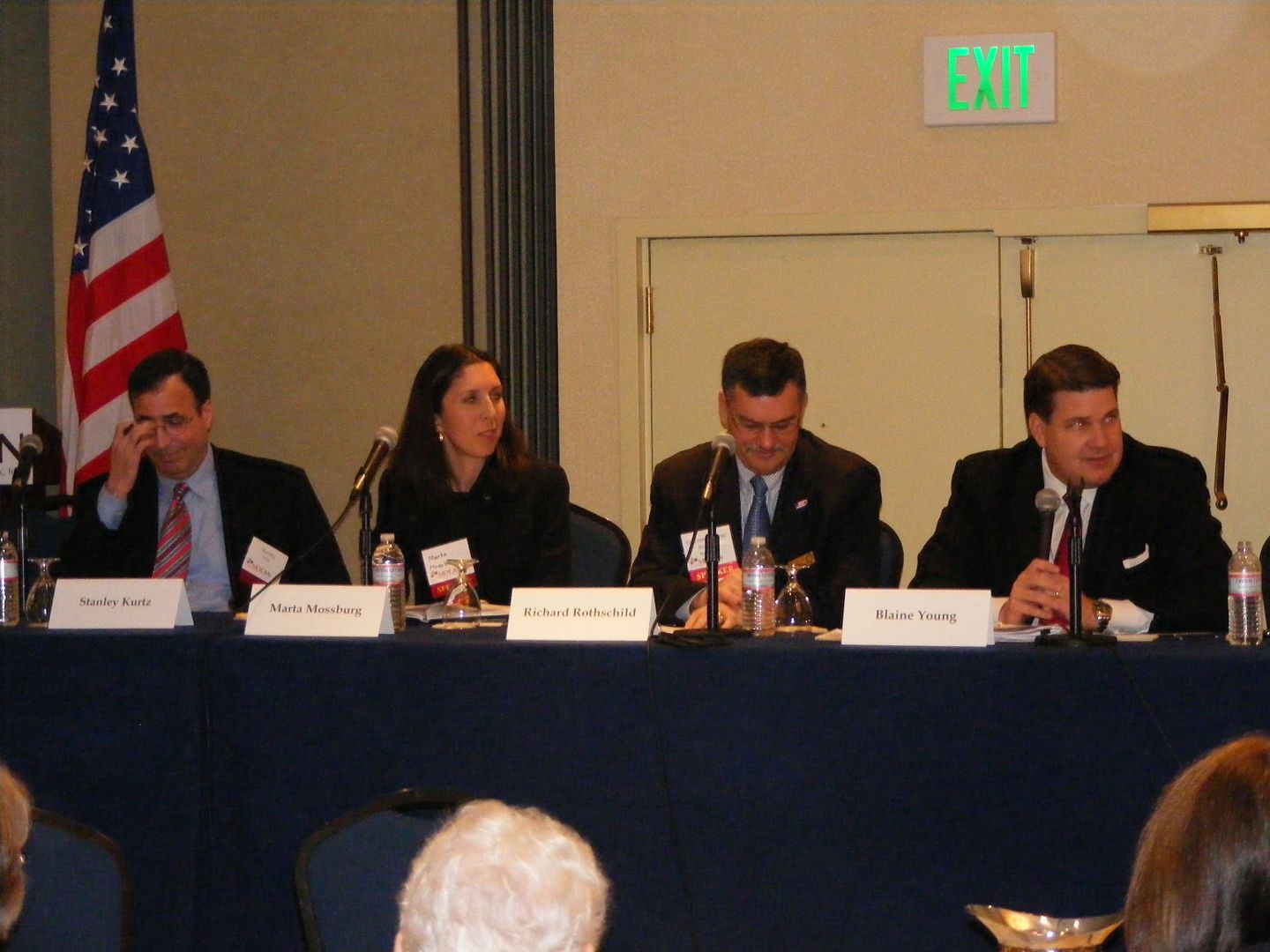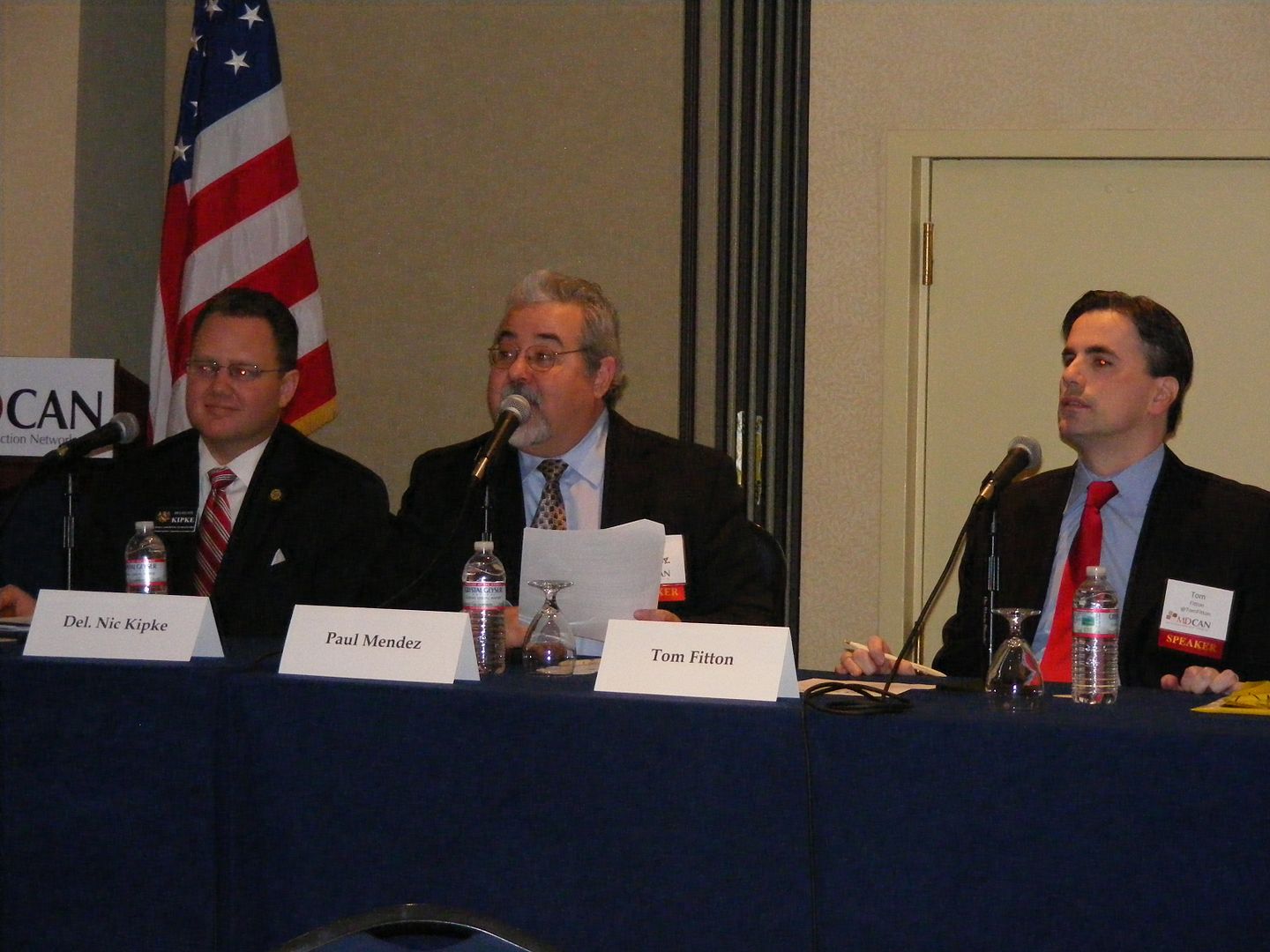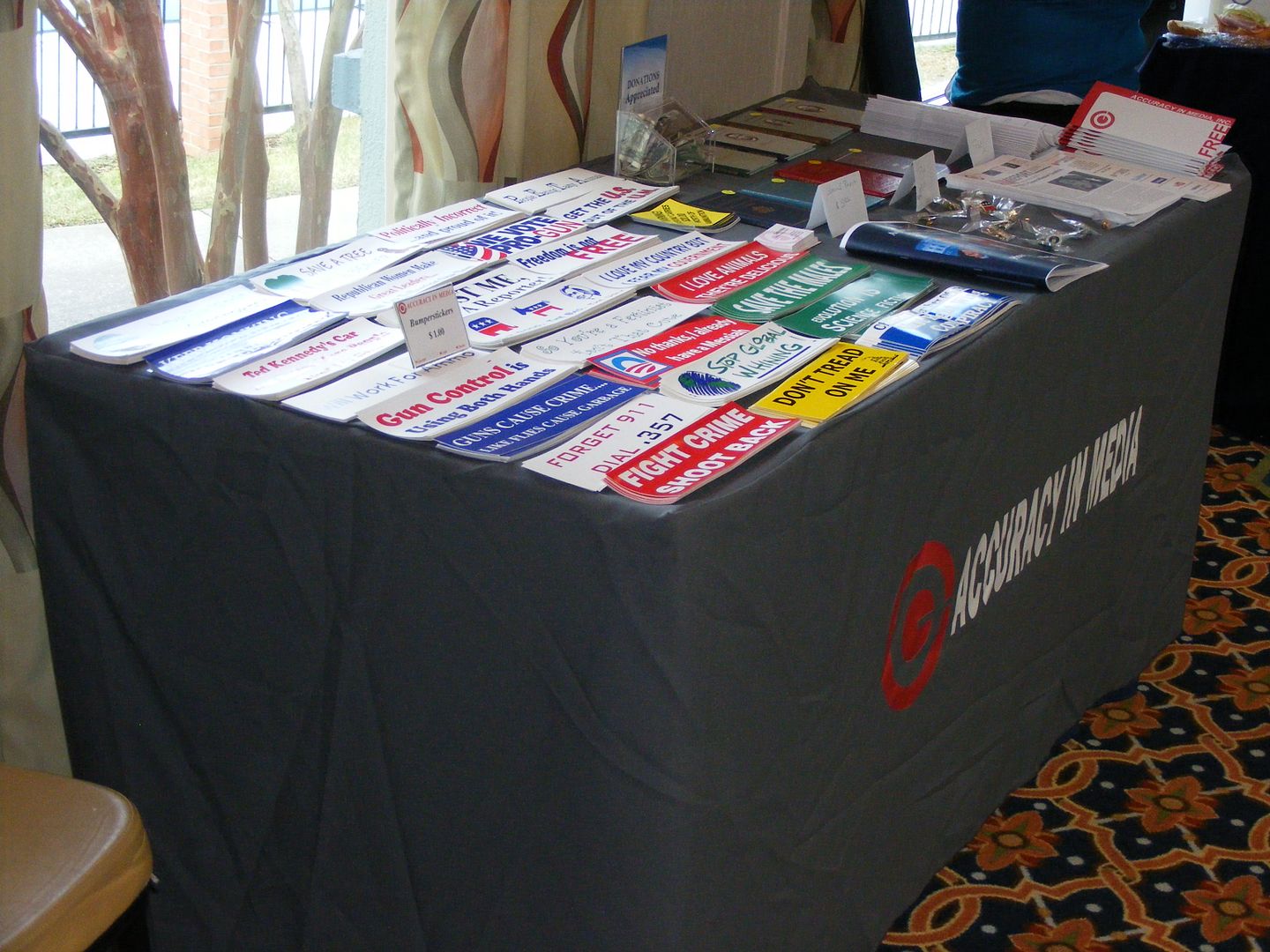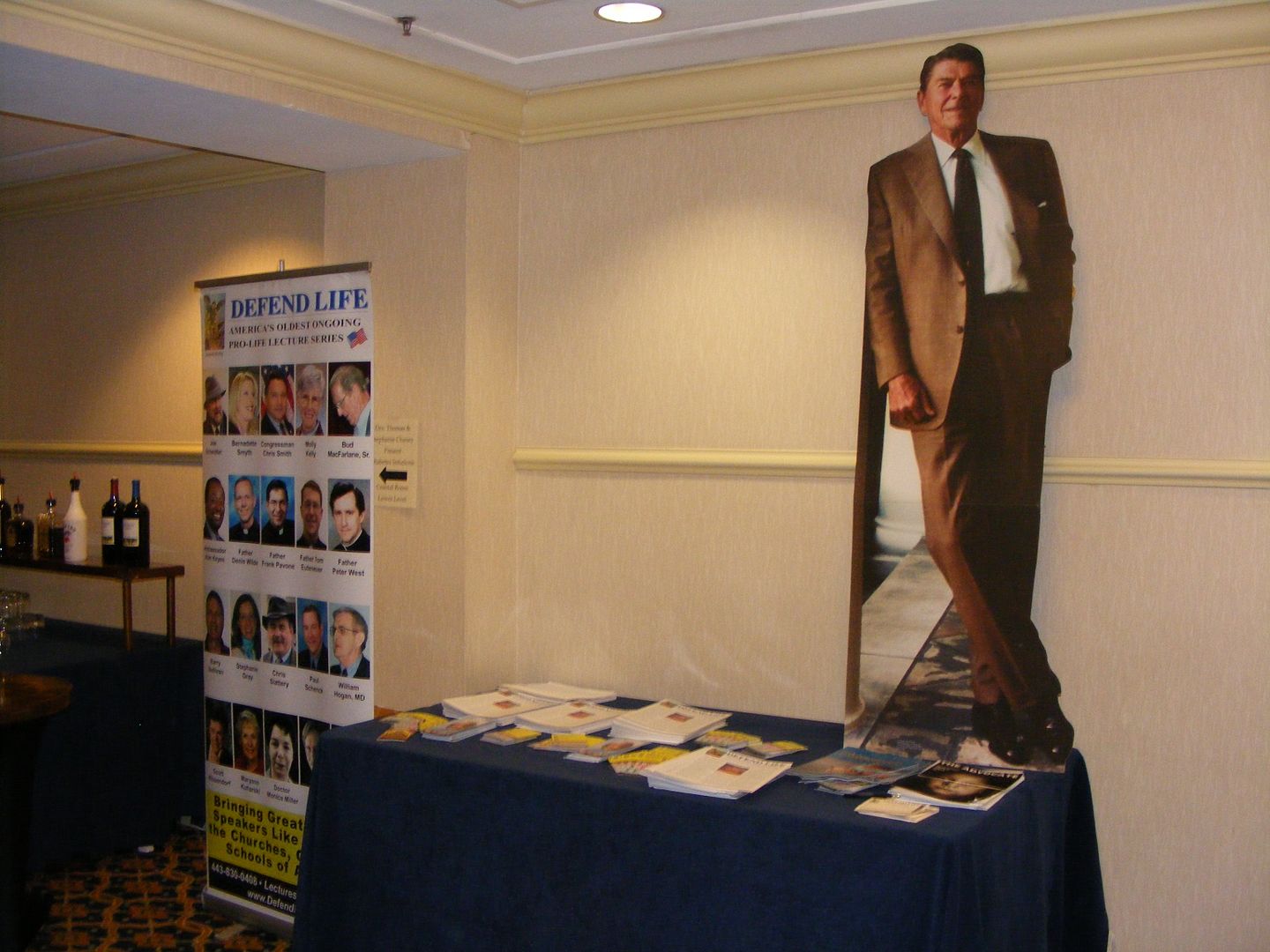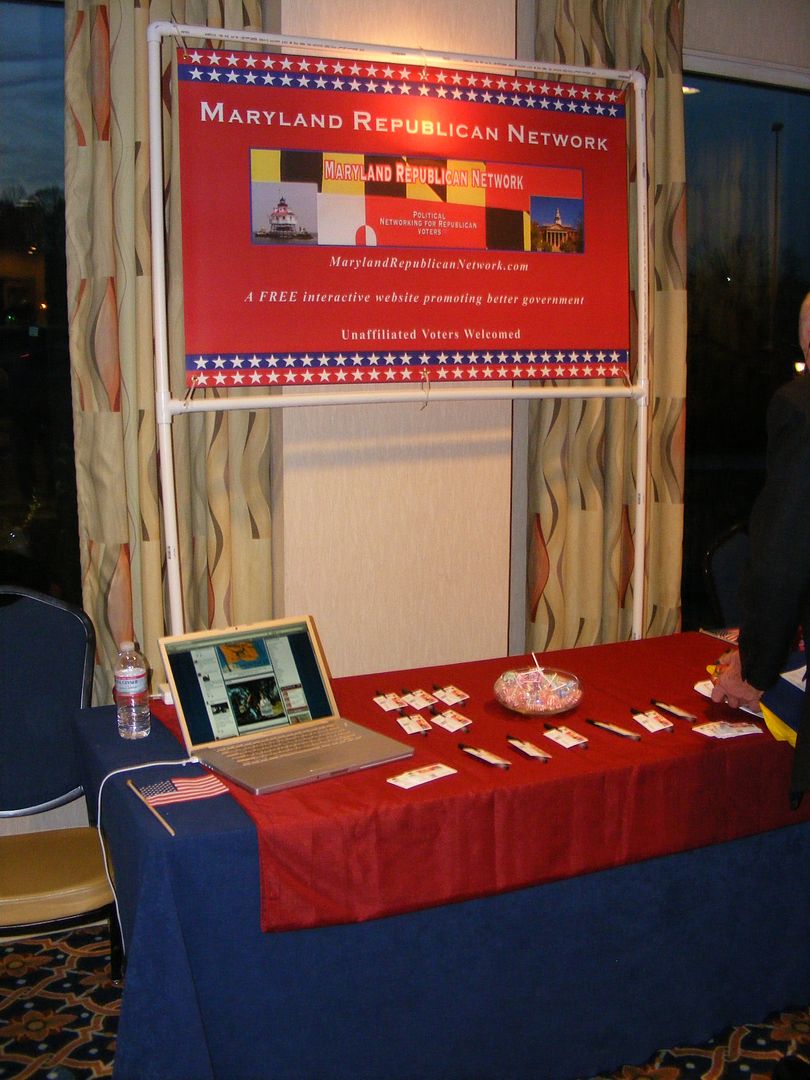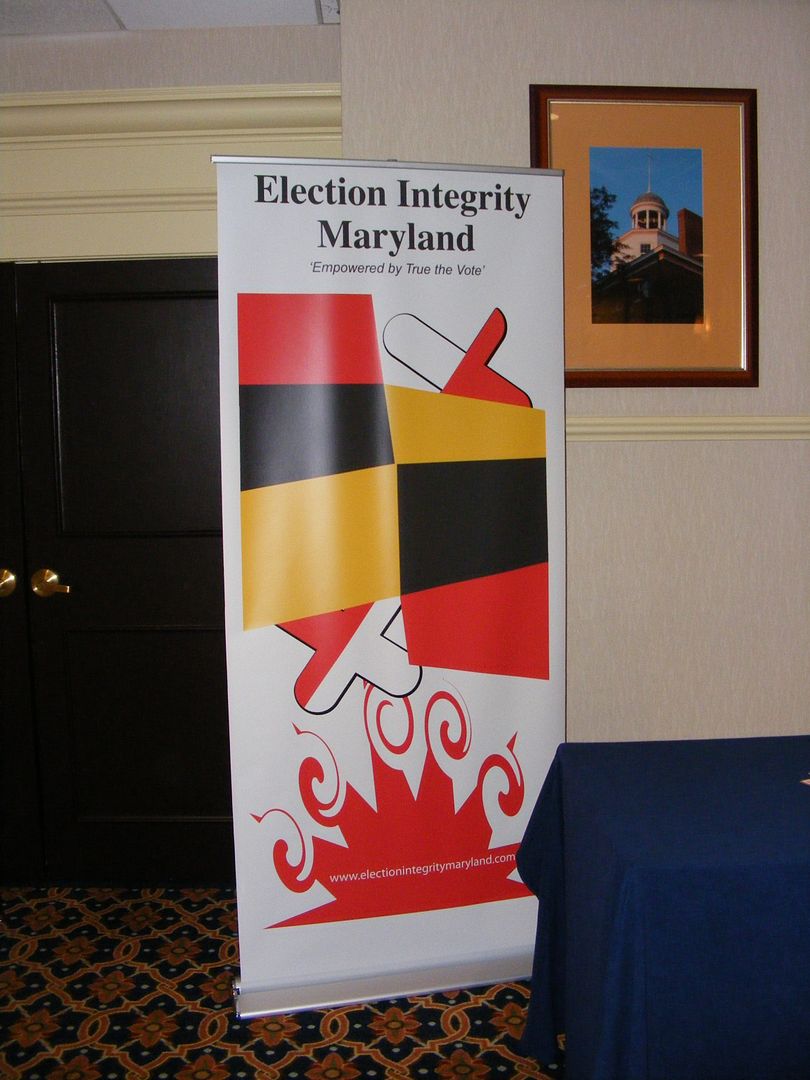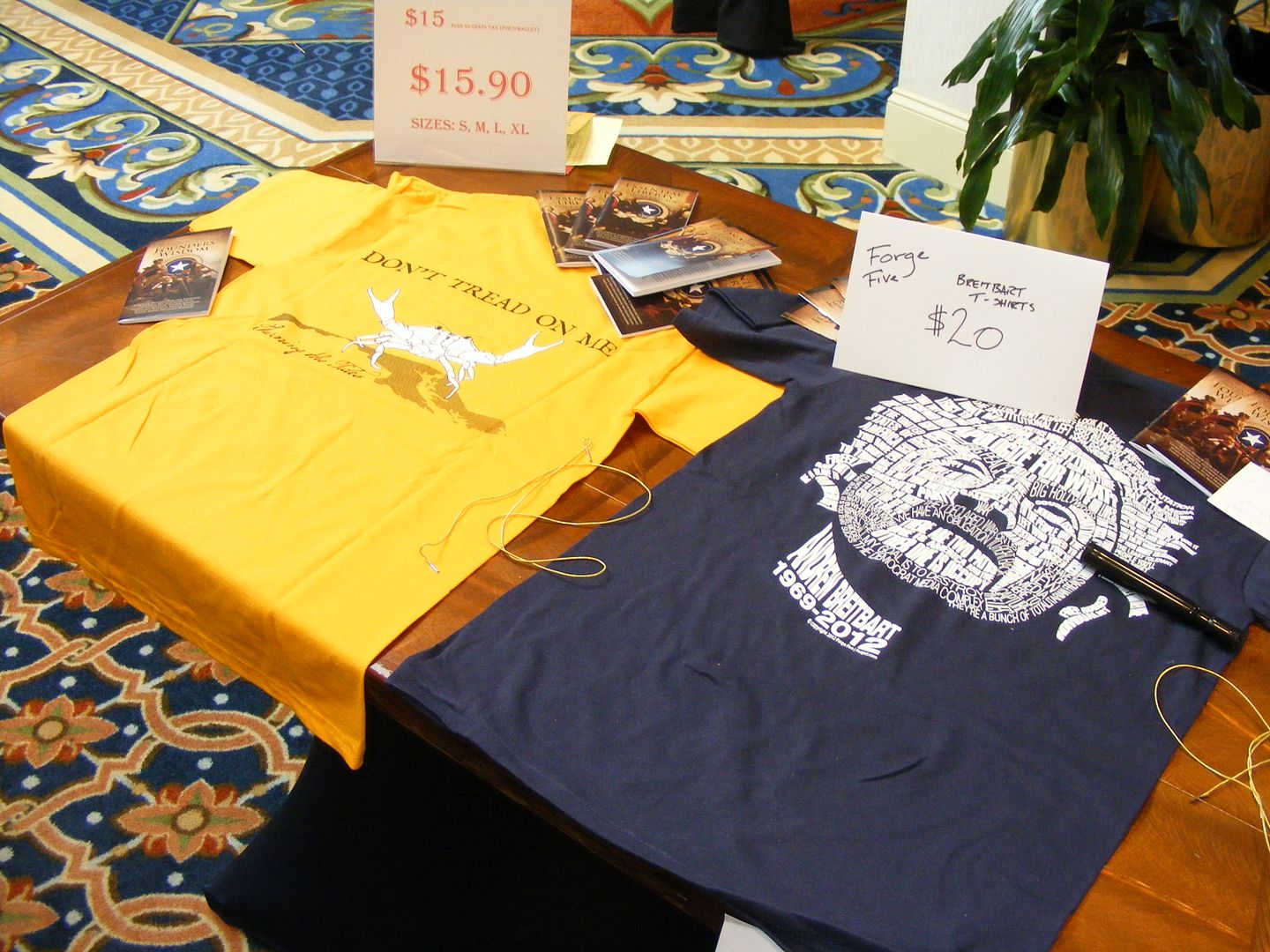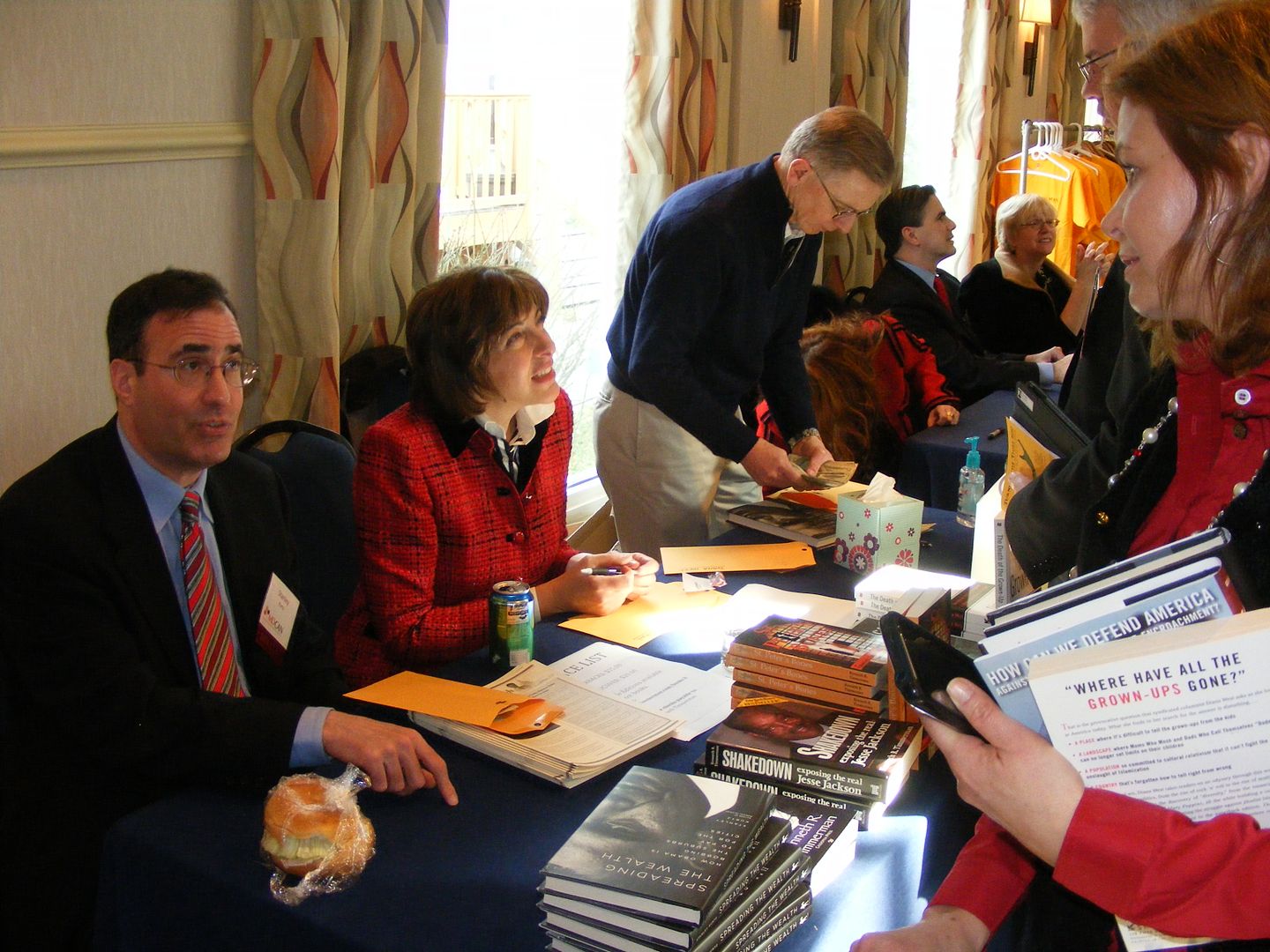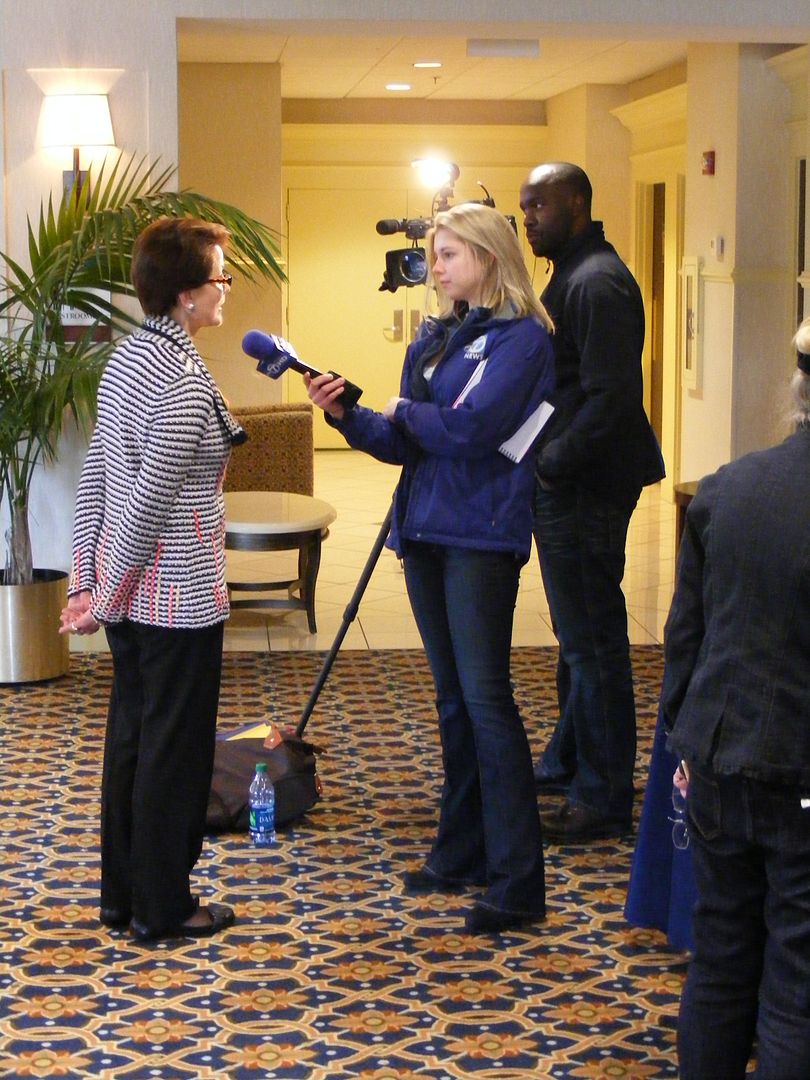The other day I had the chance to chat with a fixture of the pro-liberty movement, Andrew Langer. He’s probably best known locally as an activist and internet radio personality, but he also serves as president of the Institute for Liberty. We touched on a lot of these subjects during a fairly lengthy, in-depth conversation.
**********
monoblogue: Let me get my readers up to speed here. You’ve actually been on my blog a few times in various capacities, I’ve noticed that your name has come up quite a few times. But, really the first time I really got to talk to you a great deal was when the TEA Party all got started.
Langer: Sure.
monoblogue: Now, the question I have – and I know you were there at the beginning – you’re actually the president of Institute for Liberty, which was actually around before the TEA Party…
Langer: Yes.
monoblogue: …but was kind of carried along with the TEA Party, but where do you think, in the four years or so the TEA Party has been in existence, where do you think it’s gone and where do you think it’s going to go. Is it dead like some people say?
Langer: Well, no, I mean insofar as the – the movement existed before the TEA Party, and will continue to exist after the TEA Party. Movements are always changing fundamentally; that’s the nature of them. They go a certain distance, and then they stop, and they transform, that’s what happens. So, before the TEA Party movement was the Don’t Go movement, you had the property rights movement, you had the various taxpayers’ movements that have been out there…the TEA Party movement has just been an outpouring of discontent in which things got jelled together very, very easily and lots of different factors came together.
What killed the TEA Party brand was the media itself, which never really understood what the movement was. It never fit into any of their particular boxes, and what the media doesn’t understand the media will work to destroy – especially if that thing they don’t understand is actively working against the things they have advocated for in the past.
So it’s a brand that has been damaged, but the movement goes on – and the movement, as all movements change as I said – different parts of it will focus on different things. (Part of it) will continue to focus on health care and health care reform. You have folks who focus on electoral issues and will continue to focus on electoral issues; a lot of them will focus on state and local races, some focused on Congressional races, some focused on Presidential races.
A lot of – and probably the most positive thing to come out of the movement – was the proliferation of new media, and the raising of the blogosphere as a legitimate force to be reckoned with. That’s certainly going to continue to go on, and obviously there’s been a certain degree of institutionalization of that in things like the Franklin Center and the various Watchdog Wires, and that cannot help but be a good thing.
Between that and the re-connection of people with their government, there is no going back from that, and that’s why, while the movement itself may not be the same thing as it was before, the forces that were at work will continue to be forces that are at work.
monoblogue: Let me back up one second here. You’re President of the Institute for Liberty, and I guess – I guess it would be good to explain what their role is insofar as the entire movement.
Langer: Sure. Well, I mean, and keep in mind I inherited the Institute for Liberty from a friend of mine who has gone off and become a successful author. IFL had been focused on a lot of defense and tech issues – and we still do a little bit of each – we are a nonprofit advocacy organization, which means that we take issues and we advocate on behalf of a particular side from a free-market, limited government perspective.
As it happens, I’ve got a background in mass movement organization. That’s something that I’ve spent a lot of time studying, something that I’ve had some efforts in growing up, and so when the TEA Party movement itself began to form I found I had an expertise that I could lend to that movement, both in themes, organizational structures, and merely offering, as I saw, logistics – you know, how do you organize a rally? What are the elements of a rally? What goes into putting something together? And so, for me, the Institute for Liberty never had the resources of a FreedomWorks or Americans for Prosperity – we didn’t sort of jump on the moniker in a way that TEA Party Patriots or TEA Party Express were able to, but what we could offer was logistical advice and support to people.
In the very real sense in D.C. where we organized – we were part of the first TEA Party rally in February of ’09, to organizing the D.C. Taxpayer TEA Party, to offering our resources for the 9/12 D.C. march…
monoblogue: Which I was at.
Langer: What?
monoblogue: I was there. I was at 9/12.
Langer: Yeah, and I spoke, and it was great. And then at the state level offering up advice to various TEA Party events and also speaking at various TEA Party events in the state, so – it’s one of those things where for us, it’s never been about credit, it’s never been about glory, it’s never about making us center stage. When the Annapolis TEA Party was being put together, we were there at the start, sort of offering up our advice, but it was very clear that guys like Aaron Jones and his brother, they were wanting to head it up and they were wanting to put it together. We’re not interested in turf fights so we said whatever you need from the Institute for Liberty that we can give to you to help you put this together, we’ll do that. Whether it was financial support, or whether it was saying, hey, you need to get these permits or you need to get that, here’s how you want to do a press release, or here’s how you ought to put together the program…but beyond that, we were not folks who needed to be at the top of anyone’s list – that’s just not what we’re about. So we were happy to act in a supporting capacity.
monoblogue: That’s all right; the movement needs that, too. But another thing…
Langer: Michael, let me just say – and this is very, very key – I’m a firm believer in the philosophy that’s it not all about me, and it’s not all about IFL. And I think we need more folks to recognize that it’s not about their own personal glory, this is about getting stuff done and making change. And making change means making not about you.
monoblogue: I was going to ask about something else, but the way you answered that question, I’m going to slide into something else here…
Langer: Sure.
monoblogue: …about the Maryland Republican Party. (laughs) And the game of personalities we seem to have in that party right now.
Langer: Yeah.
monoblogue: I know you had considered running for the (party Chair) post and you had to back out.
Langer: Yes.
monoblogue: Because of…
Langer: Well, I mean, I make no secret about this, it’s one of those things where I almost ran in ’10, and had actually come very close to pulling the trigger. But at that point it was simply one of my donors said that they couldn’t fund IFL, and one of the great problems with the MDGOP Chairman’s position is that it’s an unpaid, full-time volunteer job – and it really would be the equivalent of a full-time job. And with two kids at home – my wife and I have a very equal partnership in child care – I couldn’t take on a full-time volunteer gig and sacrifice the Institute for Liberty at that point; it just couldn’t happen.
In ’12 the circumstances had changed somewhat. But the real problem is that my wife is an active-duty officer in the Air Force and either there’s a strong likelihood we will get transferred this year, and if we don’t get transferred this year there is 100% certainty that we will be transferred by July of 2014. I am not someone who takes on a job like chairman of the Maryland Republican Party without setting some clear goals and working toward those goals – I certainly couldn’t complete any of those goals in the next five months and there was great question in my mind whether I could complete my goals to my satisfaction in seventeen months and at that point we’d be back where we were before.
monoblogue: With an election to run.
Langer: Which is essentially the chaos of a party chairman’s race in which people confuse criticism with infighting, and all the things that go on with that. I’m not talking about the certain specifics of this race right now, but the reasons why I didn’t run are those very clearly. I’m someone who is incredibly optimistic about the Maryland Republican Party; I do not think that all hope is lost. With the amount of disarray and infighting that we have in our state party – I have seen disarray and infighting in other state parties as well, so Maryland is unfortunately not unique, but certainly there are challenges. And as if there are people who are – who want to work toward overcoming those challenges and there are people who are actively working against overcoming those challenges, and there are people who don’t know how to overcome those challenges. But those challenges can be overcome.
I think it starts with that proposition that the Chairman’s job is too big for one person to do, and anybody who thinks that it is a job that can be done by one person – they are either deluding themselves or they’re simply not capable of handling the job.
monoblogue: Well then that actually brings up a little bit of a different question – this will be more effective in a couple years when we select all new officers – should they run as a slate? Should we have a – instead of doing separate elections for each of the (Vice-) Chairs, would it be better to have a particular slate go up and vote for an entire slate rather…
Langer; No, I firmly believe in the freedom of choice, I believe in building coalitions, in the fact that people ought to try to work together. I think part and parcel of that is having individual elections for the different officers. I do, however, believe that more people ought to be involved in the running of the state party. I do believe that we ought to – we might ought to consider looking at – especially if the state party is going to continue to run with having the Chair being an unpaid volunteer position. I think we ought to consider dividing up that Chair’s responsibilities, maybe among co-chairs, I think there ought to be – and this is a conversation that I’ve had with Greg Kline – is that there ought to be more people involved in that operation. Certainly I think if more folks stepped up and were willing to take on more of the chairman’s responsibilities and work with the chairman to take on those responsibilities, I think that you would find more people willing to run for Chair.
A group of my friends and colleagues, we talked to a lot of folks about running for Chair, about who was going to run for Chair, who might run for chair? And by and large, the number one complaint that people has was it is too big of a job for one person to do as a volunteer gig only. In the near term the state party simply does not have the resources to pay someone to be Chairman, especially if they pay an Executive Director, and they shouldn’t. But the point is, so long as it is this haunting huge responsibility for one person, unpaid, the more discouraging it becomes for somebody to run for Chair. Good, qualified people to run for Chair.
And so I had pledged to Greg (Kline) that if he ran I would help him for as long as I could and as much as I could, as long as I’m in Maryland and probably after I leave Maryland I’ll still continue to help Greg because I have every intention of returning to Maryland down the road. Other folks around Greg have pledged to help him and to make sure that his chairmanship is a success. It’s not just voting for Greg, but voting for folks around Greg who are good people and who want to work – and there are a lot of folks who sort of stepped up there and said, yeah, I’ll help out.
It gets to another of my big themes of this Chairman’s race, which is inclusivity vs. exclusivity. And this idea that, in order to build a party, you need to be solicitous of outside opinion and outside help. One of my great criticisms of Diana Waterman – and this is a criticism, it’s not a knock on Diana Waterman’s personality, I think Diana Waterman is a lovely person, she’s a pleasant person. She is someone who avails herself of opportunities to get active. But I will not say that Diana Waterman is someone who’s incredibly solicitous of inclusivity. Case in point is the job that she’s handled, she has demonstrated a record of someone who has not been someone to bring people into the office to work, or bring people into an organization to work. Diana steps in, and she becomes chairman of something, and people are shut out of the process.
You can talk to folks about the Eastern Shore Republican Alliance, which Diana stepped in there and became Chair, and she had a few folks around her who were regional vice-chairs, and the operation went nowhere quickly because it became bureaucracy. It became another thing for Diana Waterman to become chairman of, and it was very clear that she didn’t want any outside help, and that doesn’t build the party.
monoblogue: But it built her resume.
Langer: Well, it built her resume. And that is something I’ve also talked about, which is an issue of confusing promotion with accomplishment. Which I think is something fundamental – confusing the resume with competence. This gets into the two things that happened last week, which calls into question, and I’ve said this before – anyway, I’m getting too far afield here.
It’s this issue of inclusivity, and I’ll give you a prime example: folks who believe this Chairman’s race is only of interest to Central Committee members, and I’ve heard this from a few people that only Central Committee members ought to be briefed as to what’s going on with the state party and why the Chairman’s race is important. That sends a message to your rank-and-file Republicans, who elect Central Committee members, that their opinions are not needed, that they have no place in advocating who should be Chairman because they’re not Central Committee members, they haven’t been involved to the degree that Central Committee members are. That’s fundamentally the wrong message.
Not only is the Chairman’s race of import to every Republican in Maryland who is trying to vote to bring a different vision of government to the state of Maryland, but it’s important on a national scale, too. Because the Chairman, and what the Chairman can do, has an impact on this rules fight that is going on and is going to happen in the next couple of weeks as the RNC Rules Committee meets. And as you can see by what happened (two weeks ago), the Chairman has an incredible amount of influence as to what happens at that Rules Committee, either by appointing someone who is dedicated to undoing the damage that happened in Tampa over the summer, or by someone who is by all accounts part and parcel of the damage that happened over the summer.
monoblogue: Well, let me – I will say this: in refuting the idea that the race is just of interest to Central Committee members, my readership has just surged as this whole thing has developed. A lot more people come to my website to read about the situation than the 300 Central Committee people.
I am curious about one other thing – this is where I’m going to wrap up. The Red Maryland network and the radio show that you did, how did that all come together? I’ve been kind of curious how that all started.
Langer: I had been wanting to do a podcast for awhile – I experimented with a podcast through a thing called HipCast because a buddy of mine, Phil Kerpen, had said something about doing a HipCast, you could do it by phone. But I didn’t like the audio quality there. And so at CPAC in 2011 I launched LibertyLine, which was an actual semi-slick podcast where I was upping the production values, I got a good microphone, I was doing interviews by phone – and remember, Mark Newgent was, at the time, a neighbor of mine. So Mark came in and sat in with me a couple of times.
(Meanwhile) Greg (Kline) and Brian (Griffiths) had done their Red Maryland show by BlogTalk, and they decided they were going to do – they wanted to create an actual network and they apparently talked to Mark and Mark said, hey neighbor, I know you’re doing this, would you like to instead do a weekly show with me instead of, you’re doing your thing one interview or two interviews three times a week why don’t you change schedules and come on and do this with me? And so that’s how it was born.
Greg and I started doing it, and then he and I started shopping it around – we both had contacts up at (W)BAL, so we’d done some fill-in work on BAL’s ‘1090 At Night’, you know, made inroads to the Mike O’Meara Show, helping out, doing some stuff with those guys – so that’s how it is. Greg and Brian wanted to develop an actual sort of podcast political network, understanding how the whole industry is changing, and that’s what they did. They’ve got programming five out of seven nights now.
monoblogue: Yeah, I really think that’s interesting – now I am not a person that does a lot of radio per se, but I can tell you from just checking around that it’s almost like people are getting into multimedia moreso – I mean I started my blog in 2005 and nobody had ever heard of blogging, let alone internet radio. Now you have people that do video, radio – we’re our own little subculture of media here, and it’s kind of interesting to see where it’s going to go in the future.
Langer: Well, this is what I’m saying – this is one of the great things that’s come out of the TEA Party movement. It is that there’s this proliferation of new media – Mark and I, when we were together before Mark moved back to the Western Shore, when he and I would do our show weekly we would do a radio component and a video component. We would get set up over here because Mark’s house was chaos at night and mine was a little more subdued, and so all the folks that broadcast together on the Red Maryland network, they do a video component so they’re on both BlogTalkRadio and UStream, you could watch or listen. It’s a little bit harder now that Mark and I aren’t in the same place, although I’d like to do that – there’s something that’s lost when we’re not able to give each other visual cues about things, but that’s the nature – the nature of media in the future is going to be narrowcasting, which means you go to a subset of the population, so for us it’s Marylanders and conservative Marylanders that we’ve been wanting to branch out a little bit into a little more pop culture so we can bring in a wider audience, and it is all on demand.
So one of the big debates that we have at Red Maryland radio is BlogTalkRadio the platform to use, is live radio – see, for me, live broadcast is overrated because the bulk of our listenership comes from the downloads. I look at podcasts like the Mike O’Meara Show – I don’t know if you’re familiar with it, but Mike was on the radio for almost 25 years. They moved to a podcast format – they get maybe 150-200 listeners who listen or watch live on their live feed, but they get 35,000 downloads a day, because folks like to be able to pick and choose when they will listen to their podcasts. That’s the nature of the future.
And so that is another area where I think Greg has a much superior track record is this embracing of the new media, is this embracing of the blogosphere, in a way that the party simply, for whatever reason, has not done so – not only because they just don’t get it, but also because they confuse criticism with disloyalty. I think Greg knows in the end that some of his biggest critics are going to be his “buddies” at Red Maryland. And we know that guys like Joe Steffen are going to ream him a new one. I don’t think he minds it so much, I think he recognizes – he’s adult enough to recognize that there comes a time when you have to be open to criticism. That maybe one of the other big barriers this party has faced. Dissent is inherently patriotic, and certainly in Maryland it’s a cherished right.
monoblogue: (laughs) Yeah…
Langer: Folks who lead the party have to be more adult about that criticism, and recognize it’s going to come with the territory. And if you’re not taking flak, you’re not over the target.
monoblogue: There you go. I mean, I… (laughs) I’m sitting here chuckling because I’m kind of the rabblerouser on that front for several years.
Langer: Yeah!
monoblogue: I know just how – my blog and my political career on the Central Committee started almost the same time, so (laughs) they’re well aware…
Langer: For me, it’s one of those things where I had to step down from my Central Committee for my mental health. I was in a situation in which I had four people on my Central Committee who, if I said the sky was blue, they would swear the sky was pink.
It’s one of those things where at some point you have to make that calculus “is my time going to be better spent doing other things?” For me, it’s my show, obviously, with Mark, and the stuff I do with IFL.
But this Chairman’s race is of import, which is why I’ve gotten involved, and why Greg has my support. I make no bones about that fact.
monoblogue: Well, we appreciate it. That’s going to be a lot to write about.
**********
Indeed it was, as I spent part of my Saturday afternoon and most of Sunday evening transcribing this lengthy interview. Maybe I should look into a podcast.
But I thank Andrew for his time, and look forward to speaking with next week’s guest.
